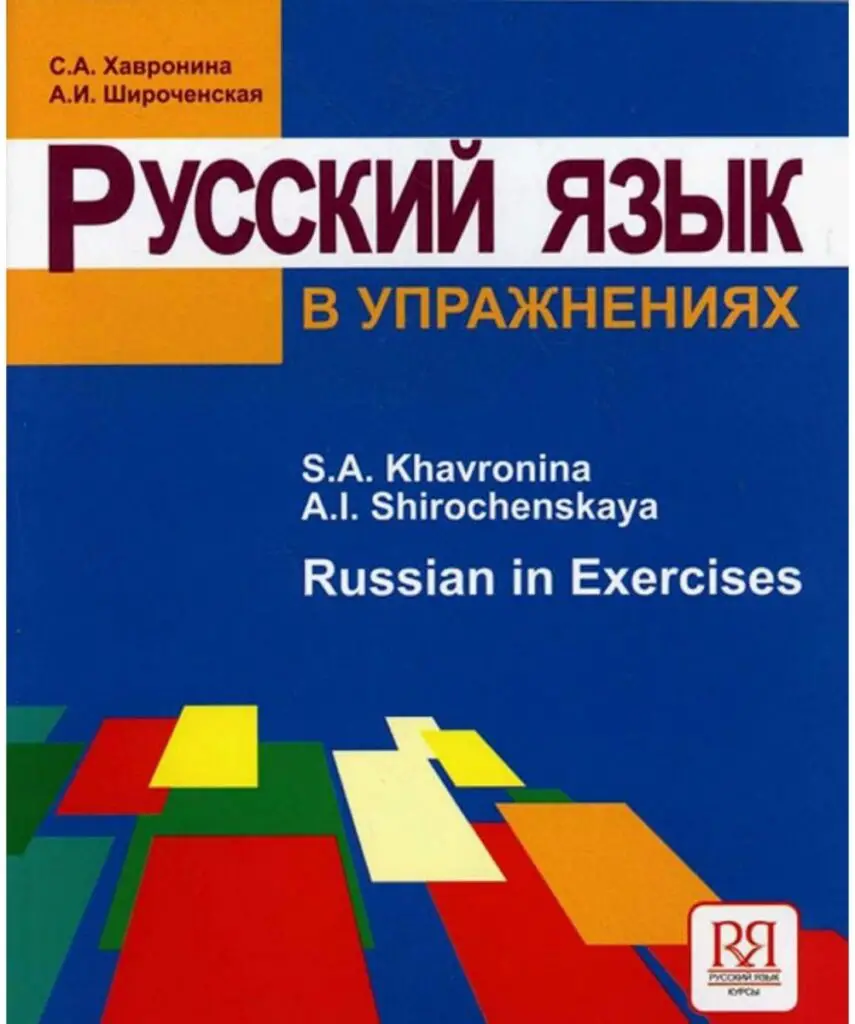From Folkways Editor-in-Chief Josh Wilson: With Internet access and apps now saturating even most of the post-Soviet space, books are becoming somewhat archaic in learning Russian, even for those studying abroad. I remember my new pocket dictionary and copy of 501 Russian Verbs becoming softened and gently stained fairly quickly on my first time abroad. However, there are now online resources like Multitran and Cooljugator that are free and faster to use. Even full textbooks can now be found online – and for free.
Thus, this resource is meant to supplement our list of Online Resources for Students of Russian with those resources that have value specifically as either books, and particularly as workbooks, or as sources that have helped me personally and might also help point you in interesting directions for your own search for books you’ll love. Finding material that resonates with you personally determines, to a great extent, the success and speed you will experience in learning a language.
Disclosure: Some of the links below are affiliate links. This means that, at zero cost to you, I will earn an affiliate commission if you click through the link and finalize a purchase. Revenue earned through this site helps fund site maintenance and new content creation.
 Russian in Exercises
Russian in Exercises
This is a work of simple elegance, combining clear explanations with practical examples and then several exercises to work through so that you have to use the grammar once shown to you. I found that I could focus on the book for hours because it was so methodical. For anyone looking to self-study, or looking for independent extra practice or explanation of subtle concepts, from beginner to advanced, this book comes highly recommended.

 Russian Verbs of Motion
Russian Verbs of Motion
This book dates all the way back to the 1950s. So, I was surprised when my Russian teacher in Moscow assigned me this book. The language and pictures used are dated and the book itself is small. However, it’s still in publication and use because, like Russian in Exercises (above), it’s a simply elegant book of strong explanations, understandable examples, and simple exercises to help you through one of most difficult parts of learning Russian.

 Russian Stories: A Dual-Language Book
Russian Stories: A Dual-Language Book
This collection of short stories by famous Russian authors is presented in side-by-side translation. Reading it was highly rewarding, even as a lower-intermediate student, simply for the joy of feeling that I was reading Chekhov and Tolstoy in the original. The format means that you needn’t constantly pause to look up a word, but rather more fluidly shift to the next column to compare the text you don’t understand to one that you will. I also remember thinking, for the first time in the process of language learning, that it seemed more useful to compare sentences and thoughts than to compare individual words. This opened up many more nuances and a wider understanding of the text – and the words. SRAS projects now present many resources in side-by-side translation. In large part, this was inspired by my experience with this book. You can also find other dual-language books and annotated readers at Russia-on-line.com.
 Kak ya sel sobaku and other works by Evgeniy Greshkovits
Kak ya sel sobaku and other works by Evgeniy Greshkovits
Kak ya ce’l sabaku is the first book in Russian that I read from cover to cover. I bought it, a collection of contemporary monologues, in Dom Knigi, the famous Moscow bookstore, after its striking cover and title caught my eye. Written as spoken text, it is more simplistic than many literary texts. It was thus fairly easy to get through, despite my having to look up some of the more specific vocabulary (such as that related to naval experiences). I enjoyed the book so much that I immediately bought another by Grishkovets, Rubashka, a novel, to see if I could tackle it as well. Not everyone likes Grishkovits, but I find his rough-around-the-edges, everyday language and his characters, who are often contemplating the things in life they find important, or dealing with everyday situations that have become overwhelmingly difficult for them, to be engaging and endearing. Most importantly, it kept me turning the pages and enjoying my language skills as they grew.
Several of his texts, including monologues from Kak ya cel sobaku and the full novel of Rubashka can be found online, for free, on legal sources. You might also check to see if Russia-on-line has anything in stock.

 The Russian Word’s Worth
The Russian Word’s Worth
Particularly valuable for translators and more advanced speakers, this book covers, in narrative fashion, a number of subjects such as youth slang, political jargon, and proverbs. It’s also funny and opinionated, which can make it interesting and, at times, exasperating to read depending on if you already have your own opinions of Russia and its culture. I recommend this book particularly just before or during your first study experience, especially for those who will arrive with intermediate or advanced language skills already in place. Then, listen for the phrases you’ve read and watch for things that the book has talked about, talk to locals about their thoughts, and use it to enlighten and focus your experience abroad.

 Advanced Russian Through History
Advanced Russian Through History
Especially for advanced students looking to build academic language skills and deep cultural understanding, this text book will take you from Kievan Rus to modern (pre-2007) Russia. Lessons will ask you to think critically about history – in Russian – and express your thoughts in academic Russian.
The materials that inspire you to learn more will always be quite personal to you. However, hopefully this list has pointed you in some interesting directions to make your own discoveries – if it’s not given you some discoveries directly! Счастливого пути!










